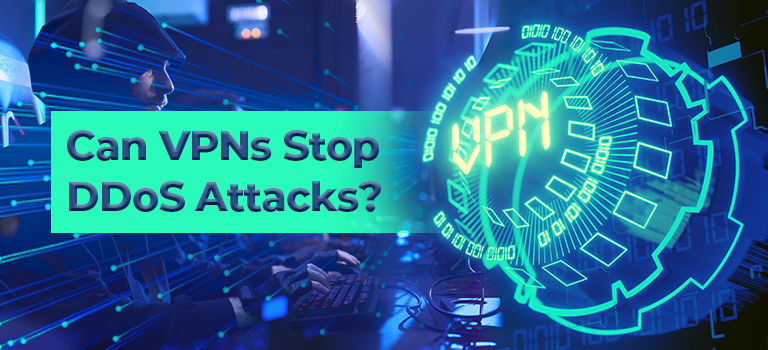The whole point of a website is to be up and running 24/7; however, cybercriminals can attack at any moment, forcing you offline. They can use Distributed Denial of Service (DDoS) attacks to interrupt your business and impact your revenue. In a DDoS attack, attackers send thousands of unwanted requests to the servers, preventing legitimate users from reaching your site.
How do DDoS attacks work?
Let’s say that you have an eCommerce website where you sell a few products. A few customers are using their computers or phones to peruse your website. Now, apart from them, someone doesn’t want to see you succeed and decides to attack your server. They can use their device to flood your website with fraudulent traffic.
When a single computer is attacking you, it’s called a Denial of Service (DoS) attack since it’s coming from a single source. It would be easy to pinpoint and close the connection in this scenario. However, the main problem arises if the hacker uses multiple devices simultaneously, which causes a DDoS.
The ringleading computer can create an attack from multiple sources and overwhelm the server. Even though the website is online, it still has a server with limited memory, CPU, and bandwidth. As a result, the legitimate people browsing your website will experience lag and eventually be denied service. That’s because the server will be preoccupied with handling all the fraudulent requests.
Hackers can use malware to recruit hundreds of thousands of computers. Their army is called a botnet, and it can span throughout the world. The main computer is the center, and every other device is bound to listen. DDoS attacks typically last for a few hours, however, in some scenarios, it can take days before they’re over.
Is there a way to avoid them?
You might be the type of person never to harm a fly. In that case, it may not make sense to you why anyone would want to attack your website. Well, some hackers want to do it just for fun. Groups of people are known to bundle together to try and gain notoriety in the hacking community by carrying out malicious attacks.
What’s more, there have been instances of cyberterrorism where hackers have attacked government sites just to prove a point. One way to protect yourself is to hide your IP address with a VPN.
How do VPNs help?
The primary purpose of a Virtual Private Network (VPN) is to mask your IP address. They encrypt your device using multiple internet protocols to ensure you get the same browsing experience. Let’s look at the same eCommerce website, but this time, there’s an enabled VPN.
The hacker can still perform a DDoS attack, but the target won’t be your website. Instead, they’re going to attack a masked IP address and direct the entire operation toward the VPN service’s websites. Also, some advanced VPN providers offer more than masked IPs. For example, NordVPN has a Threat Protection feature, which is capable of detecting malware and malicious websites. The feature itself blocks both malware and these websites and keeps your browser safe from hacking.
What to look for in a VPN?
First and foremost, you need to check the number of servers—the more, the merrier. VPNs offer multiple advanced features such as blocking ads, trackers, and malware. You can avoid suspicious websites and emails and prevent your device from being a part of a DDoS attack.
The next thing you should look for is speed. When you first connect to a VPN, you’ll notice that your browsing speed decreases. That’s a pretty good trade-off for receiving complete privacy and protection. Still, you don’t want to slow down your device too much.
You should also look at their privacy policy and check whether they’re collecting and storing any data on you. Most companies use a no logs policy, which means that everything you browse gets deleted. However, if the company is trying to sell your email behind your back, the whole point of their service flops.
Finally, try to get a service with a kill switch. This feature makes it impossible for your data to leak online, even if the VPN disconnects.
Conclusion
DDoS attacks can be devastating to an organization, from a downed server, booted and blocked traffic, to loss of revenue. It is paramount to stay ahead of the threat and continue business operations without the risk of a DDoS attack. One way you can stay a step (or two) ahead is by investing in a trustworthy VPN that possesses the services you need.
Harry Wilson
Tags: Cyber Attacks, Cybercriminals, DDoS, DOS, IP address, VPN, Web Security


